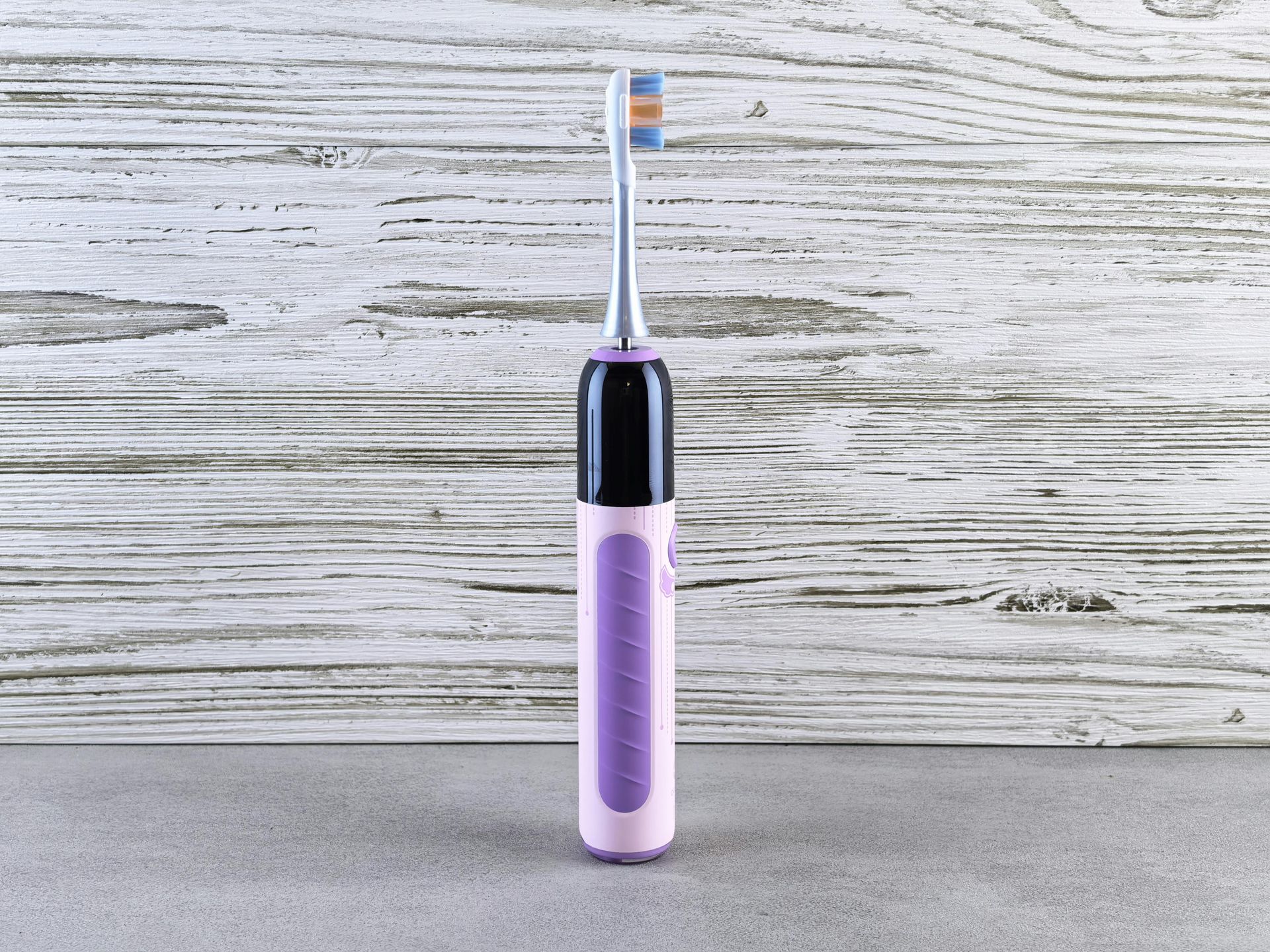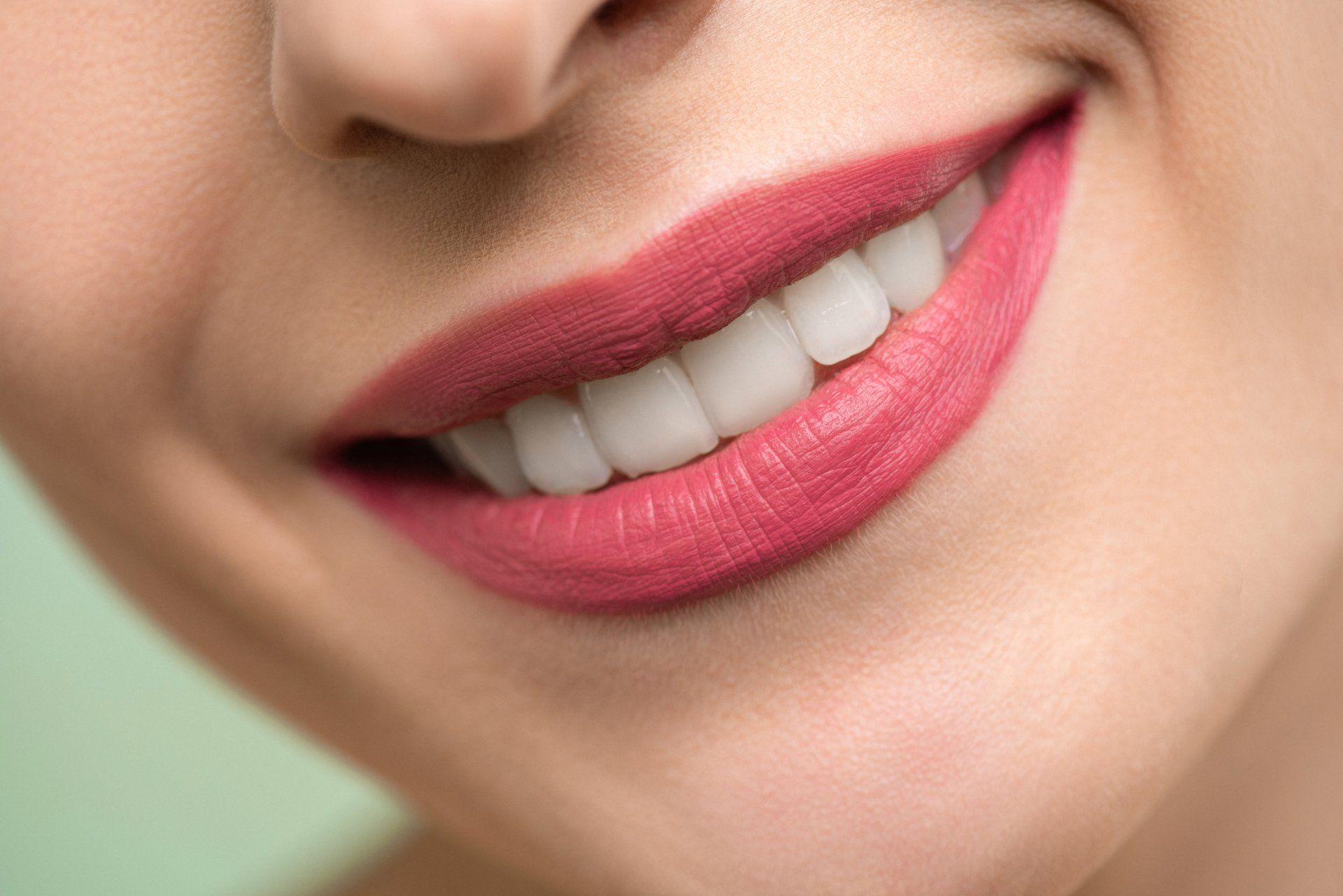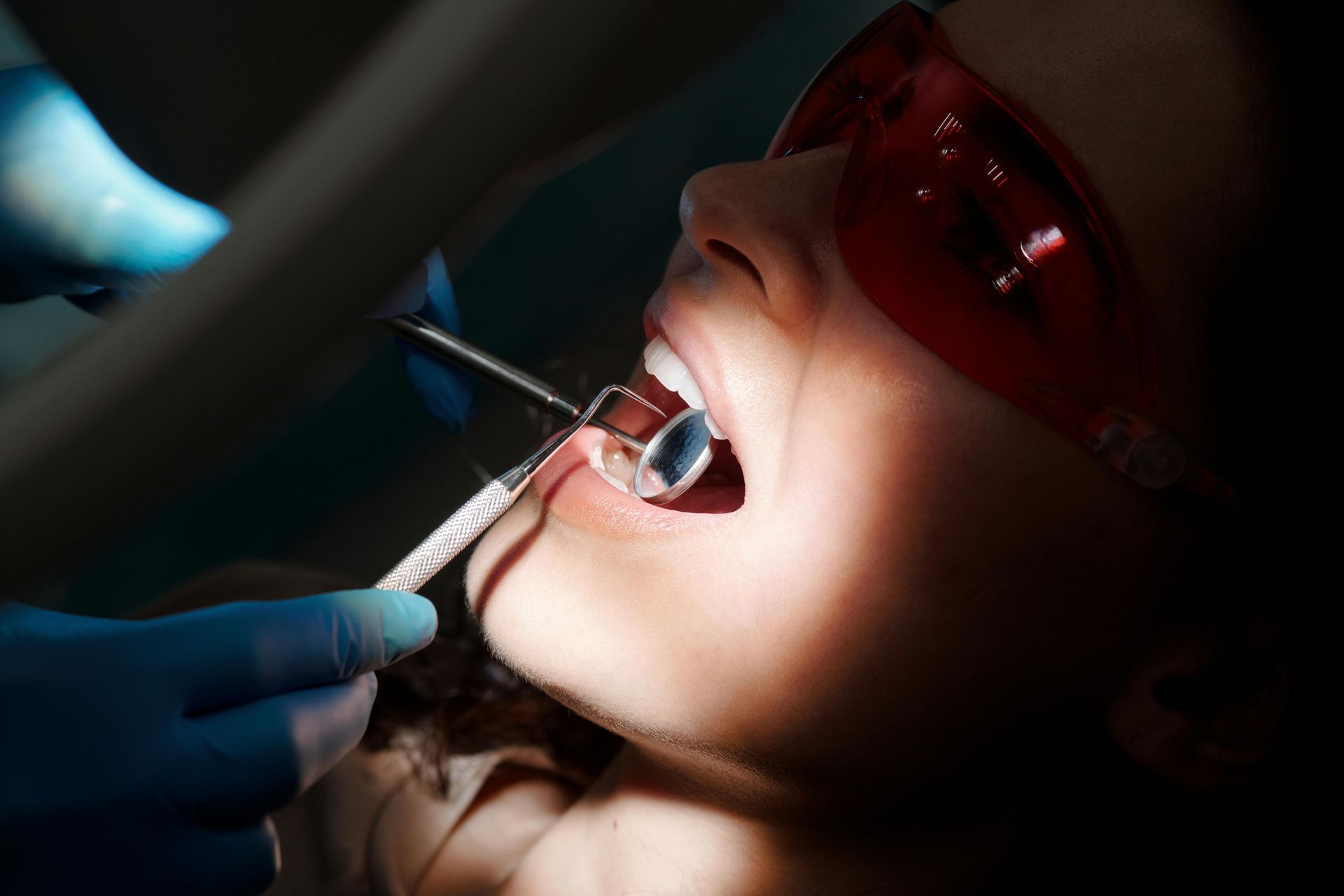BLOG

More and more patients are coming to Huszti Dental Care with questions about oral health information they have seen online, usually through social media. But many of these people come to us because they started doing something they saw on Instagram or Facebook and it ends up causing a problem. Most recently a young woman looking for whiter teeth was biting into a half a lemon then brushing with sea salt. Twice a day, every day. Her teeth weren't getting noticibly whiter, but they were getting more sensitive. That's because the lemon juice she was sinking her teeth into was eating away at her enamel! We've also heard from other patients that changes to oral health recommendations from the U.S. Health and Human Services have left them confused. So where do you go to find good, science based information? There are two simple answers to this question and the first one is obvious: Ask us. Many patients trust us for emergencies or when they are in pain, but sometimes have a blind spot when it comes to telling them something simple, like, say, don't do everything you see on the internet. These "health influencers" can be very dangerous, because they are generally not pushing good practices, they are generally promoting quick "fixes" that don't work. They don't care about your teeth, they are interested in having a big following and lots of "likes." Many of them are being paid by the social media companies for this misleading content. It seemes to work, as you will sometimes see several different social media personalities pushing the same idea—often with the exact same wording. That's because if a creator sees another creator has a lot of traffic on a particular post, they will copy it in an attempt to collect more likes for themselves. All these different people pushing the same information has the cumulative effect of making it seem sound, or like something everyone is doing. But it's simply not true. Think about that old adage: If all your friends jumped off a cliff, would you, too? But what's more dangerous is when health information is politicized, because that's dangerous and can lead to widespread problems. The confusion over use of fluoride is one example of this, and we have written about this before. Taking health information from people who do not have medical training, but have "done some research" is a sure way to get into trouble. If you want to do your own research, it's possible, but you must understand that—like social media influencers—not all sources are equal. The American Dental Association 's page is the best source for dental health information. Its content—though mostly targeting dentists—is thoroughly vetted by dental professionals and represents the most complete information, backed by scientific theory and research, available. And again, our dental professionals, all of whom have spent decades in this field, are more than happy to answer any question you may have about dental care. The only dumb question is the one left unasked.

On one recent day, three separate patients came to Huszti Dental Care for their regular checkups with questions about electric toothbrushes. That gave us the idea for this post, because it seems there are a lot of misconceptions. In general, the consistent sonic or oscillating motion of electric toothbrushes remove more plaque than brushing with a traditional toothbrush. That’s a good thing. But there are other major benefits that might make you consider investing in an electric toothbrush. To begin with, they are gentler on the gums than traditional toothbrushes. How? Many of them have built in sensors that let you know when you are brushing too hard, a practice that can lead to gum recession and a reduction to enamel. Another plus: Nearly all of them have built-in timers to encourage you to brush for the full two minutes recommended by the American Dental Association. People with arthritis or other conditions that limit their dexterity find them very helpful because the brush does the work they can’t. And many come with different settings for deep cleaning, sensitive teeth or gum care. But there are other considerations. To begin with, most electric toothbrushes cost much more than a toothbrush you might pick up in a drug store or receive free from your friendly dentist. They range from around $40 and can cost more than $100. You will also need to purchase replaceable brush heads, which need to be changed a couple times a year, at a cost of less than $10 when purchased in bulk. Then there is the issue of space. These are not convenient for people with small bathrooms or bathrooms without much counterspace, since they need to be charged and, depending on the model, that charger can be bulky. They can also be inconvenient when you travel, because you may have to pack the charger as well. Lastly, there are some people who don’t like the feeling of using an electric toothbrush. Our advice is to try it, if you think you will benefit. Of course, you may be doing a good job on your own, and you might want to save that money. Ask us next time you’re in, and we can let you know what we think is the best option for you.

Did you make resolutions for the new year? If so, you will want to make room for one more of great importance: Pay more attention to your oral health. Now some of you may think you’re doing a good job, and you just may be, but here are a few things to think about to get your new year off to a good start. Replace your toothbrush: Most people seem to think the one they get at their visit to Huszti Dental Care is good until the next time they visit us—six months later. Not a good idea. Worn toothbrushes are less effective at removing plaque and bacteria, which increases risks of decay and gum disease. Experts say you should change your toothbrush—or the head of your electric toothbrush—every three to four months. Children may need to do it more often because they can be really strong brushers. Also, always replace your toothbrush after you are sick, as the brushes can reintroduce germs. Time your brushing: All the experts say you should strive for two times a day for two minutes each time. Next time you brush, use a timer and brush for the full two minutes. You may think you’re probably close, but chances are you are not. Consciously brushing for two minutes each time lets you remember the back teeth or the other corners of your mouth you may forget about regularly. Keep dental floss at hand: We all should be flossing more, but you often don’t because it always seems to be one more chore keeping you from your snuggly warm bed. Keep a package of dental floss in your car, or your desk at work, even the kitchen, so it’s always nearby when you need it. Make that dental appointment—and keep it!: It’s a quick call. Heck, at Huszti Dental Care, it’s just filling in an online form . Just give us your contact information and we’ll reach out to do the rest. Think about your teeth when you eat: Food can stain your teeth and it can strain your teeth, so cut down on coffee and dark sodas, red wines and other stainers. (You could also simply commit to using a straw when drinking these items. But also remember that teeth need a calcium-rich diet including dairy, broccoli, almonds and fruits and veggies to remain strong. Just choose one or two of these to start doing now if all of them together seem overwhelming. Incorporate the others later, you’ll be glad you did. And next year, you will have something more fun to make a resolution about.

It's the holiday season. So for many that means parties, lots of food and maybe a celebratory drink or two. There are so many studies about alcohol that make the news that it can be hard to keep up. A study that says a glass of red wine a day may be good for your heart health is followed closely by another study that says daily consumption of alcohol is dangerous. But what researchers don't take into account in many of these studies is the effect alcohol has on oral health. Not to be a downer, but alcohol abuse can lead to higher plaque levels, and increased risk of tooth loss or decay, mouth sores and periodontal disease. There is also an increased risk of oral cancer. The reason behind most of these risks is simple: sugar. Alcohol may not taste sweet, but there are sugars in it and bacteria in your mouth feed on those sugars and grow. Slowly nursing a drink over a long period of time keeps sugar levels elevated and that helps bacteria grow. A second reason is that alcohol dries out the mouth. That means saliva is reduced and since saliva rinses away bad bacteria in the mouth, the risk of problems like tooth decay and gum disease are increased. More immediate is that without saliva to wash away that bacteria, you can develop bad breath, which is no fun for you or those around you. Now most people won't have to worry about this, but it is possible that alcohol can stain your teeth, especially if you are a fan of red wine. After a glass of two you can often see a slight discoloration that goes away with brushing. But it's just a good thing to know, especially if you have been told you have weak enamel. Solutions? They are so easy it's almost not worth writing about. Cut down on sugar by drinking dry wines and limiting fruity alcoholic drinks. Also, drinking water after each alcoholic beverage will rinse some of the sugars down. (It's also a good idea to keep yourself sober.) Snacking is also a good idea to get the saliva flowing—just stay away from the sweets! You can also chew some sugar-free gum in between drinks. And, of course, maintaining your oral hygiene regimen of brushing and flossing is a must. So if you plan on making alcohol a part of your holiday celebrations remember: Your teeth aren't immune to the effects of alcohol. Be responsible, so you won't regret it later.

Halloween is just around the corner. And we don't want to be a wet blanket by telling you things you already know, but...too much candy can be detrimental to your dental health. And we don't expect anyone to not let their little goblins out for a fun night of screaming and collecting treats. But here are a few things you can do to minimize any impact the sugary treats might have on your children. Eat Halloween treats with meals If you unwrap a sugary treat right after meals, your mouth is already making the extra saliva it needs to help rinse away bits of food (and candy). That's the point of saliva, it removes bacteria. Sugary things should not be regular snacks Eat them, sure, once in a while, but mix it up a bit. Fruit, raw veggies, nuts or crackers should be the primary snacks. This goes for kids — and adults. Sticky candy is the enemy Avoid sticky, gummy sweets that can cling to your teeth, which raises your risk of developing cavities. Also, hard candy that stays in your mouth for a long time isn't great either. Also, sour candies have lots of dietary acids that can attack the enamel of your teeth. Chocolate is good! (In moderation) Chocolate is the most popular kind of candy and it won't stick to your teeth like other candies do. Dark chocolate is even better, because there’s less sugar in semisweet and dark chocolate than in milk chocolate. Don't be the keeper of a candy bowl It may be tempting to keep candy around and your coworkers may love it, too. But your teeth will be happy if you put the candy away so you won't mindlessly eat it all day long. Also, limit your kids' candy consumption to one or two pieces a day. Chew sugar-free gum If you do eat candy, consider chewing sugar-free gum afterward. It will minimize the damage done by the acid. Have it on hand and chew for 20 minutes for the best results. It will also keep your breath fresh. Be that family that gives healthy treats Too much of a good thing is not a good thing. Consider passing out coloring books and crayons or pens and pencils or even toothbrushes or floss. It won't go to waste and you can feel good knowing you helped another parent out.

A new patient recently called the offices of Huszti Dental Care. She told us she thought she might have a cavity and wondered what to do about it. While we don't generally encourage people to self-diagnose dental problems, or look up solutions on search engines, we did applaud her reaching out to see what was causing her pain. We set her up with an appointment and when we saw her a few days after she called she did, indeed, have a good-sized cavity that needed to be addressed. She had put off going to a dentist because she hadn't had one since she was a child and she was afraid of a dental drill. (As an aside here, Huszti Dental Care uses the newest technologies and practices that make cavity repair painless for most patients. But that's not what this post is about.) Here are the symptoms she noticed and a few others she did not experience, that may mean a cavity needs filling. Tooth sensitivity — Discomfort or pain when drinking hot or cold liquids might indicate a cavity. Sometimes people also feel pain when eating sweet foods. Toothache — A throbbing pain that won't go away, especially if it's always the same tooth. Discolored areas — Dark spots, or sometimes white spots on your teeth, often where two teeth meet. These would have to be pretty advanced cavities to show up like this. Pits in your teeth — Feeling a rough area of your tooth, usually with your tongue, that is new may also be a sign. Bad breath — Bacteria growth caused by cavities can cause this. Ask someone you trust to let you know. Of course the best way to ensure you stay cavity free is to find a dentist you like and make regular visits; the standard is every six months. We know what leads to a cavity and what to do when their is one. We often see issues long before they become cavities and can offer advice — like flossing or more complete brushing or paying special attention to a particular part of the mouth — to stop it in its tracks. The patient mentioned earlier in this post was treated with no pain and was on her way in less than an hour. Happy enough with her treatment that she made another appointment before she left, because an ounce of prevention is worth a pound of cure.